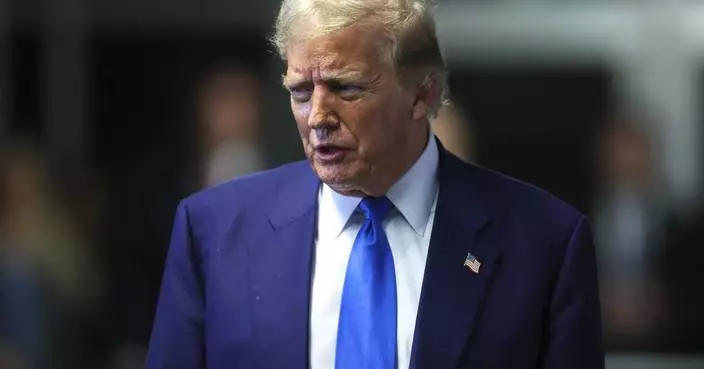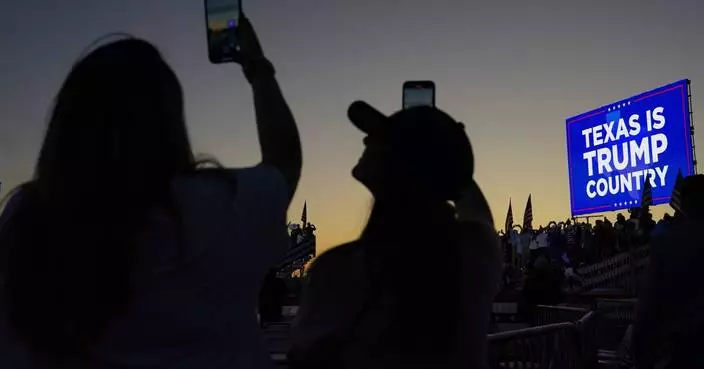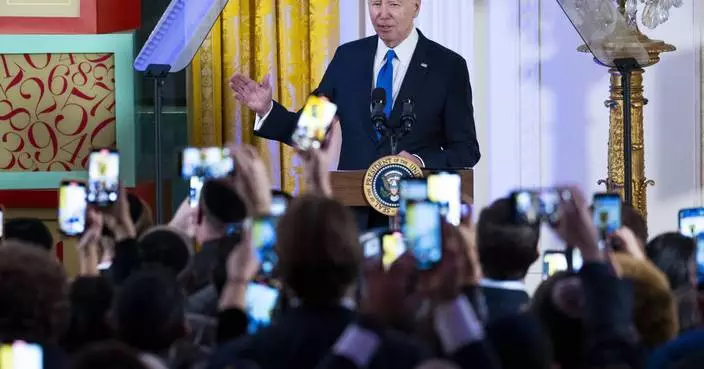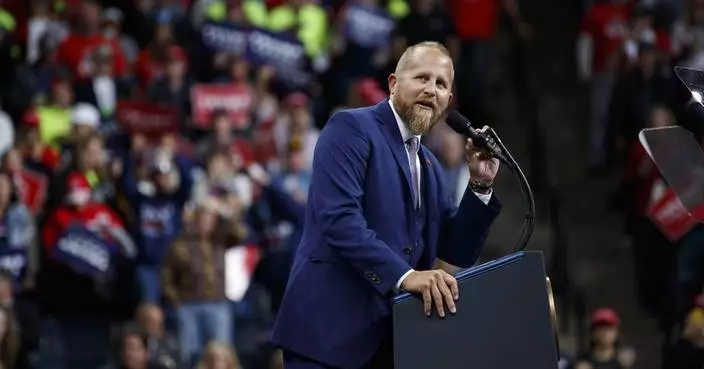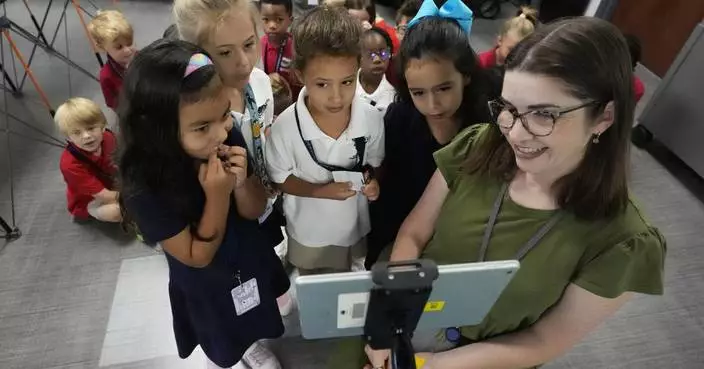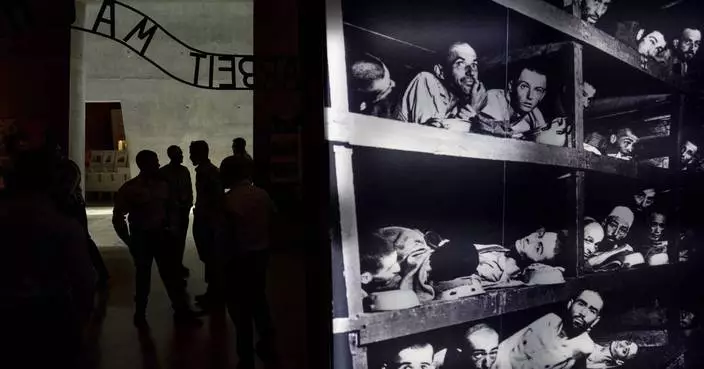"Everybody plays games," President Donald Trump declared Friday as he suggested the potentially historic North Korean summit he had suddenly called off might be getting back on track.
His sights set on a meeting that has raised hopes for a halt in North Korea's nuclear weapons development, Trump welcomed the North's conciliatory response to his Thursday letter withdrawing from the Singapore summit with Kim Jong Un. Rekindling hopes as quickly as he had doused them, Trump said it was even possible the meeting could take place on the originally planned June 12 date.
"They very much want to do it; we'd like to do it," he said.
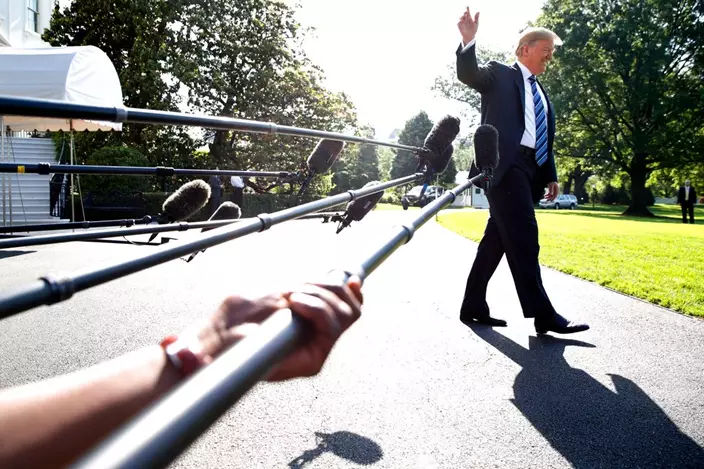
President Donald Trump waves while walking away after speaking to the media, as he walks to the Marine One helicopter Friday, May 25, 2018, on the South Lawn of the White House in Washington. Trump is traveling to Annapolis to address the U.S. Naval Academy graduation ceremonies. (AP Photo/Jacquelyn Martin)
Later Friday, Trump tweeted that the two countries were "having very productive talks." He wrote that the summit, "if it does happen, will likely remain in Singapore on the same date."
The sweetening tone was just the latest change in a roller-coaster game of brinkmanship — talks about talks with two unpredictable world leaders trading threats and blandishments. On Thursday, White House officials had noted that Trump had left the door open with a letter to Kim that blamed "tremendous anger and open hostility" by Pyongyang but also urged Kim to call him.
By Friday, North Korea issued a statement saying it was still "willing to give the U.S. time and opportunities" to reconsider talks "at any time, at any format." Trump rapidly tweeted that the statement was "very good news" and told reporters that "we're talking to them now."
Confident in his negotiating skills, Trump views the meeting as a legacy-defining opportunity and has relished the press attention and the speculation about a possible Nobel Peace Prize. He made a quick decision to accept the sit-down in March, over the concerns of many top aides, and has remained committed, even amid rising concerns about the challenges he faces in scoring a positive agreement.
Asked Friday if the North Koreans were playing games with their communications, Trump responded: "Everybody plays games. You know that better than anybody."
While the president did not detail the nature of the new U.S. communication with the North on Friday, Defense Secretary Jim Mattis said at the Pentagon, "The diplomats are still at work on the summit, possibility of a summit, so that is very good news." He characterized the recent back-and-forth as the "usual give and take."
A previously planned trip by White House aides to Singapore this weekend to work on logistics for the trip remained on schedule, said two White House officials, who were not authorized to speak publicly.
Secretary of State Mike Pompeo spoke Friday with a top official from South Korea, whose leaders had appeared to be taken aback when Trump withdrew from the summit. Spokeswoman Heather Nauert said Pompeo and South Korean Foreign Minister Kang Kyung-wha reaffirmed their "shared commitment to the denuclearization of the Korean peninsula" and pledged to coordinate "in all of their efforts to create conditions for dialogue with North Korea."
South Korea's government said in a statement released Saturday that it was relieved about the revived talks for a summit.
The U.S. and North Korea do not have formal diplomatic relations, complicating the task of communicating between the two governments. Under the Trump administration, the CIA, where Pompeo served as director before becoming secretary of state, has taken an unusually prominent role in back-channel negotiations.
Pompeo last year assembled a working group at the CIA called the Korea Mission Center, which gradually assumed the lead role in talks with the North Koreans, and the group's director, a retired senior CIA official with deep experience in the region, became the main U.S. interlocutor with Pyongyang.
The group did not supplant the State Department's traditional mode of communication with the North, which is known as the "New York Channel" and involves U.S. diplomats and their North Korean counterparts posted to the United Nations. But it did play the major role in organizing Pompeo's two trips to Pyongyang, once as CIA director and once as secretary of state.
Trump's comments Friday came after days of mixed messages on the summit.
Trump, in his letter to Kim on Thursday, objected specifically to a statement from a top North Korean Foreign Ministry official. That statement referred to Vice President Mike Pence as a "political dummy" for his comments on the North and said it was up to the Americans whether they would "meet us at a meeting room or encounter us at nuclear-to-nuclear showdown."
Trump then said from the White House that a "maximum pressure campaign" of economic sanctions and diplomatic isolation would continue against North Korea — with which the U.S. is technically still at war — though he added that it was possible the summit could still take place at some point.
A senior White House official said the North had reneged on its promises ahead of the summit, including a pledge to allow international inspectors to monitor its explosive destruction of its nuclear test site. The official spoke on the condition of anonymity to avoid overshadowing Trump's comments Thursday.
Trump's aides had warned that merely agreeing to the summit had provided Kim with long-sought international legitimacy and, if Trump ultimately backed out, he risked fostering the perception that the president was insufficiently committed to diplomatic solutions to the nuclear question.
U.S. defense and intelligence officials have repeatedly assessed the North to be on the threshold of having the capability to strike anywhere in the continental U.S. with a nuclear-tipped missile — a capacity that Trump and other U.S. officials have said they would not tolerate.
Russian President Vladimir Putin chimed in from St. Petersburg, saying that "if you don't behave aggressively and if you don't corner North Korea, the result that we need will be achieved faster than many would think, and at less cost."
Trump, speaking Friday to graduates at the U.S. Naval Academy, did not mention North Korea directly, but he stressed the United States' military might.
He said, "The best way to prevent war is to be fully prepared for war."
NEW YORK (AP) — The judge in Donald Trump’s hush money trial fined him $1,000 on Monday and, in his sternest warning yet, told the former president that future gag order violations could send him to jail. The reprimand opened a revelatory day of testimony, as jurors for the first time heard the details of the financial reimbursements at the center of the case and saw payment checks bearing Trump’s signature.
The testimony from Jeffrey McConney, the former Trump Organization controller, provided a mechanical but vital recitation of how the company reimbursed payments that were allegedly meant to suppress embarrassing stories from surfacing during the 2016 presidential campaign and then logged them as legal expenses in a manner that Manhattan prosecutors say broke the law.
McConney's appearance on the witness stand came as the first criminal trial involving a former American president entered its third week of testimony. His account lacked the human drama offered Friday by longtime Trump aide Hope Hicks, but it nonetheless yielded an important building block for prosecutors trying to pull back the curtain on what they say was a corporate records cover-up of transactions designed to protect Trump's presidential bid during a pivotal stretch of the race.
At the center of the testimony, and the case itself, is a $130,000 payment from Trump attorney and personal fixer Michael Cohen to porn actor Stormy Daniels to stifle her claims of an extramarital sexual encounter with Trump a decade earlier.
The 34 felony counts of falsifying business records accuse Trump of labeling the money paid to Cohen in his company’s records as legal fees. Prosecutors contend that by paying him income and giving him extra to account for taxes, the Trump executives were able to conceal the reimbursement.
McConney and another witness testified that the reimbursement checks were drawn from Trump's personal account. Yet even as jurors witnessed the checks and other documentary evidence, prosecutors did not elicit testimony Monday showing that Trump himself dictated that the payments would be logged as legal expenses, a designation that prosecutors contend was intentionally deceptive.
McConney acknowledged during cross-examination that Trump never asked him to log the reimbursements as legal expenses or discussed the matter with him at all. And another witness, Deborah Tarasoff, a Trump Organization accounts payable supervisor, said under questioning that she did not get permission to cut the checks in question from Trump himself.
“You never had any reason to believe that President Trump was hiding anything or anything like that?” Trump attorney Todd Blanche asked.
”Correct,” Tarasoff replied.
The testimony followed a stern warning from Judge Juan M. Merchan that additional violations of a gag order barring Trump from inflammatory out-of-court comments about witnesses, jurors and others closely connected to the case could result in jail time.
The $1,000 fine imposed Monday marks the second time since the trial began last month that Trump has been sanctioned for violating the gag order. He was fined $9,000 last week, $1,000 for each of nine violations.
“It appears that the $1,000 fines are not serving as a deterrent. Therefore going forward, this court will have to consider a jail sanction,” Merchan said before jurors were brought into the courtroom. Trump’s statements, the judge added, “threaten to interfere with the fair administration of justice and constitute a direct attack on the rule of law. I cannot allow that to continue.”
Trump sat forward in his seat, glowering at the judge as he handed down the ruling. When the judge finished speaking, Trump shook his head twice and crossed his arms.
Yet even as Merchan warned of jail time in his most pointed and direct admonition, he also made clear his reservations about a step that he described as a “last resort.”
“The last thing I want to do is put you in jail,” Merchan said. “You are the former president of the United States and possibly the next president as well. There are many reasons why incarceration is truly a last resort for me. To take that step would be disruptive to these proceedings.”
The latest violation stems from an April 22 interview with television channel Real America’s Voice in which Trump criticized the speed at which the jury was picked and claimed, without evidence, that it was stacked with Democrats.
Once testimony resumed, McConney recounted conversations with longtime Trump Organization finance chief Allen Weisselberg in January 2017 about reimbursing Cohen for a $130,000 payment intended to buy Daniels' silence over her account of a sexual encounter at a 2006 celebrity golf outing in Lake Tahoe, California.
Weisselberg "said we had to get some money to Michael, we had to reimburse Michael. He tossed a pad toward me, and I started taking notes on what he said,” McConney testified. “That’s how I found out about it.”
“He kind of threw the pad at me and said, ‘Take this down,’” said McConney, who worked for Trump’s company for about 36 years, retiring last year after he was granted immunity to testify for the prosecution at the Trump Organization’s New York criminal tax fraud trial.
A bank statement displayed in court showed Cohen paying $130,000 to Keith Davidson, Daniels' lawyer, on Oct. 27, 2016, out of an account for an entity Cohen created for the purpose.
Weisselberg’s handwritten notes spell out a plan to pay Cohen $420,000, which included a base reimbursement that was then doubled to reflect anticipated taxes as well as a $60,000 bonus and an expense that prosecutors have described as a technology contract.
McConney’s own notes, taken on the notepad he said Weisselberg threw at him, were also shown in court. After calculations that laid out that Cohen would get $35,000 a month for 12 months, McConney wrote: “wire monthly from DJT.”
Asked what that meant, McConney said: “That was out of the president’s personal bank account.”
Trump is accused of falsifying business records by labeling the money paid to Cohen in his company’s records as legal fees. Prosecutors contend that by paying him income and giving him extra to account for taxes, the Trump executives were able to conceal the reimbursement.
McConney testified that he had instructed an accounting department employee to record the reimbursements to Cohen as a legal expense.
But McConney acknowledged under cross-examination that Trump never directed him to log Cohen’s payments as legal expenses, nor did Weisselberg relay to him that Trump wanted them logged that way.
“Allen never told me that,” McConney testified. In fact, McConney said he never spoke to Trump about the reimbursement issue at all. Defense lawyer Emil Bove also suggested to McConney that the “legal expenses” label was not duplicitous because Cohen was in fact a lawyer.
“OK,” McConney responded, prompting laughter throughout the courtroom. “Sure. Yes.”
After paying the first two checks to Cohen through a trust, the remainder of the checks, beginning in April 2017, were paid from Trump’s personal account, McConney testified.
With Trump, the only signatory to that account, now in the White House, the change in funding source necessitated “a whole new process for us,” McConney added.
Tarasoff, the other witness who testified Monday, said that once Trump became president, payments from his personal account had to first be delivered, via FedEx, to his new residence in Washington.
“We would send them to the White House for him to sign,” she said.
The checks would then return with Trump’s sharpie signature. “I’d pull them apart, mail out the check and file the backup,” she said, meaning putting the invoice into the Trump Organization’s filing system.
Prosecutors are continuing to build toward their star witness, Cohen, who pleaded guilty to federal charges related to the hush money payments. He is expected to undergo a bruising cross-examination from defense attorneys seeking to undermine his credibility with jurors.
Tucker reported from Washington.
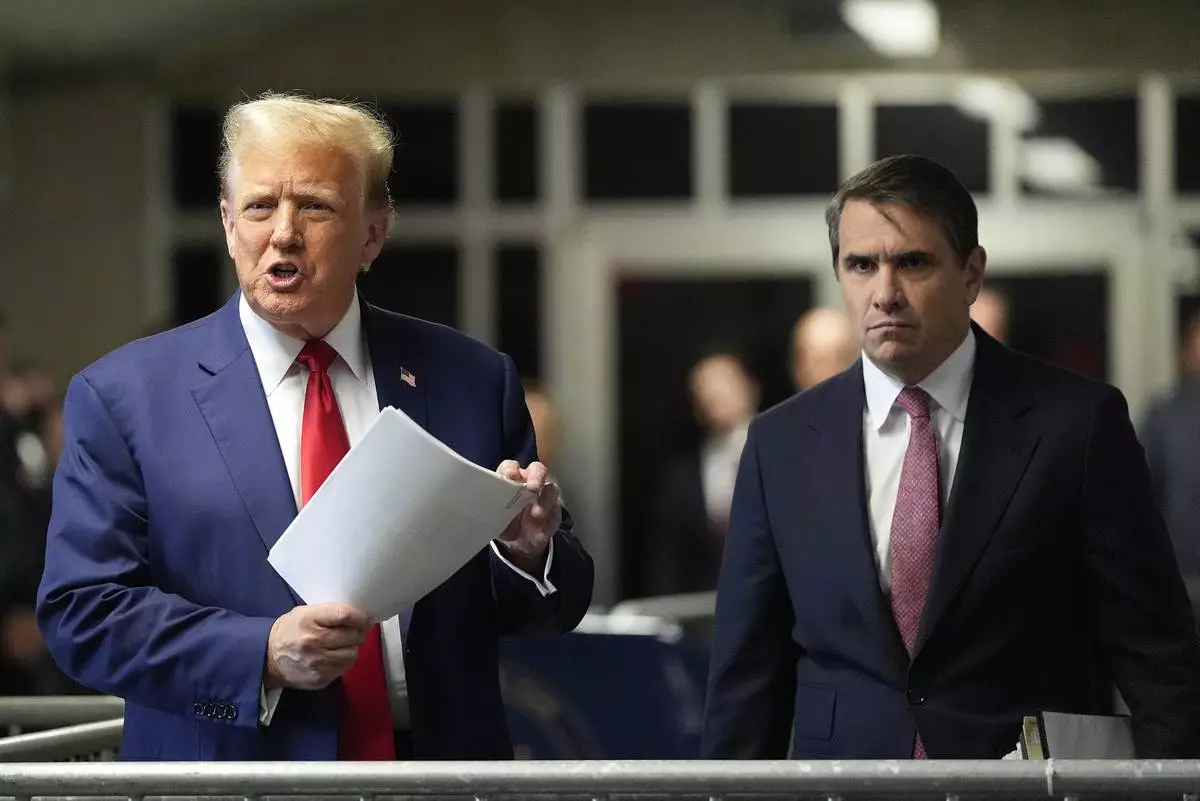
Former President Donald Trump speaks to members of the media before entering the courtroom at Manhattan criminal court, Monday, May 6, 2024, in New York. (AP Photo/Julia Nikhinson, Pool)
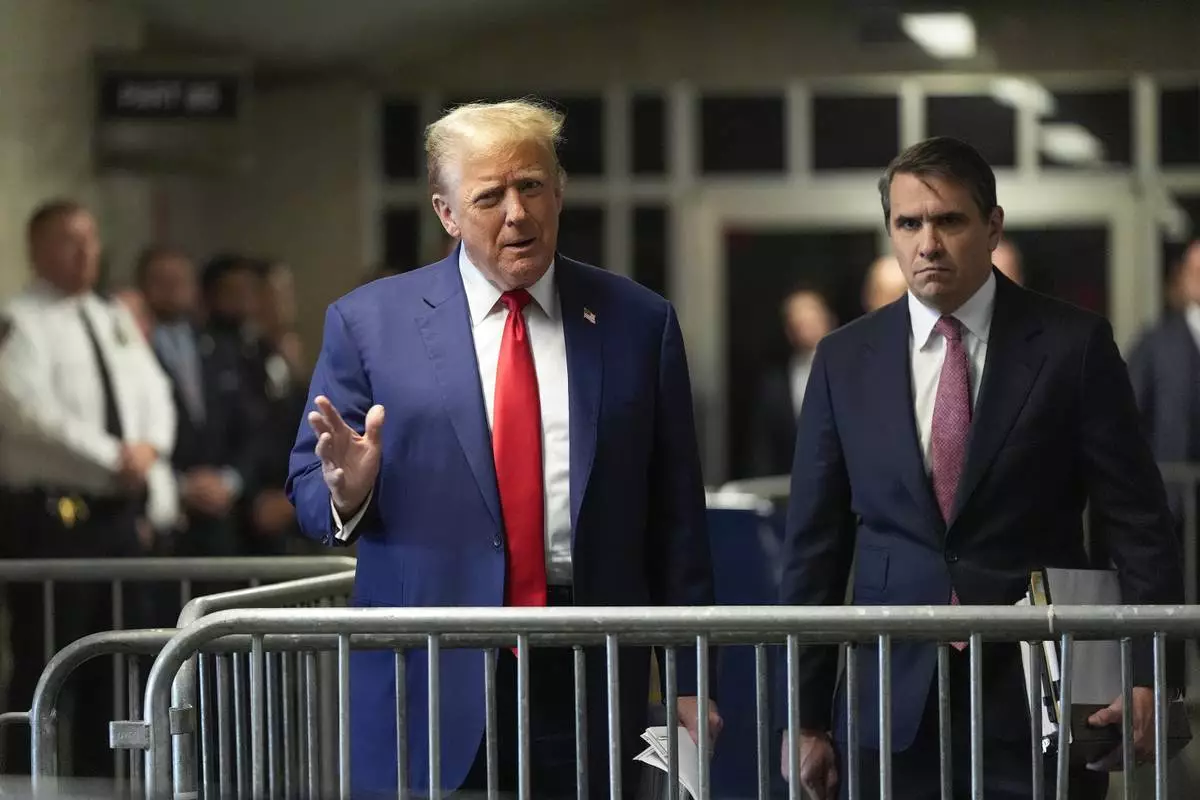
Former President Donald Trump speaks to members of the media before entering the courtroom at Manhattan criminal court, Monday, May 6, 2024, in New York. (AP Photo/Julia Nikhinson, Pool)
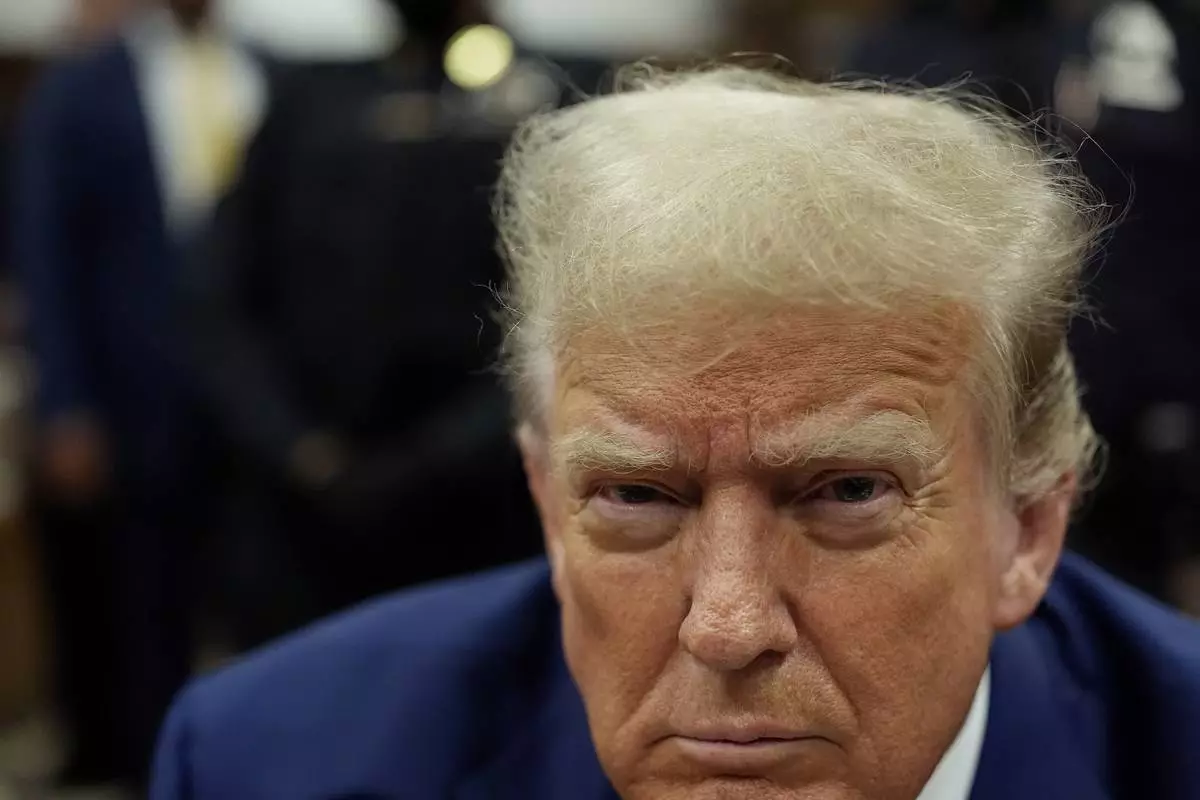
Former President Donald Trump awaits the start of proceedings in his trial at Manhattan criminal court, Monday, May 6, 2024, in New York. (AP Photo/Julia Nikhinson, Pool)
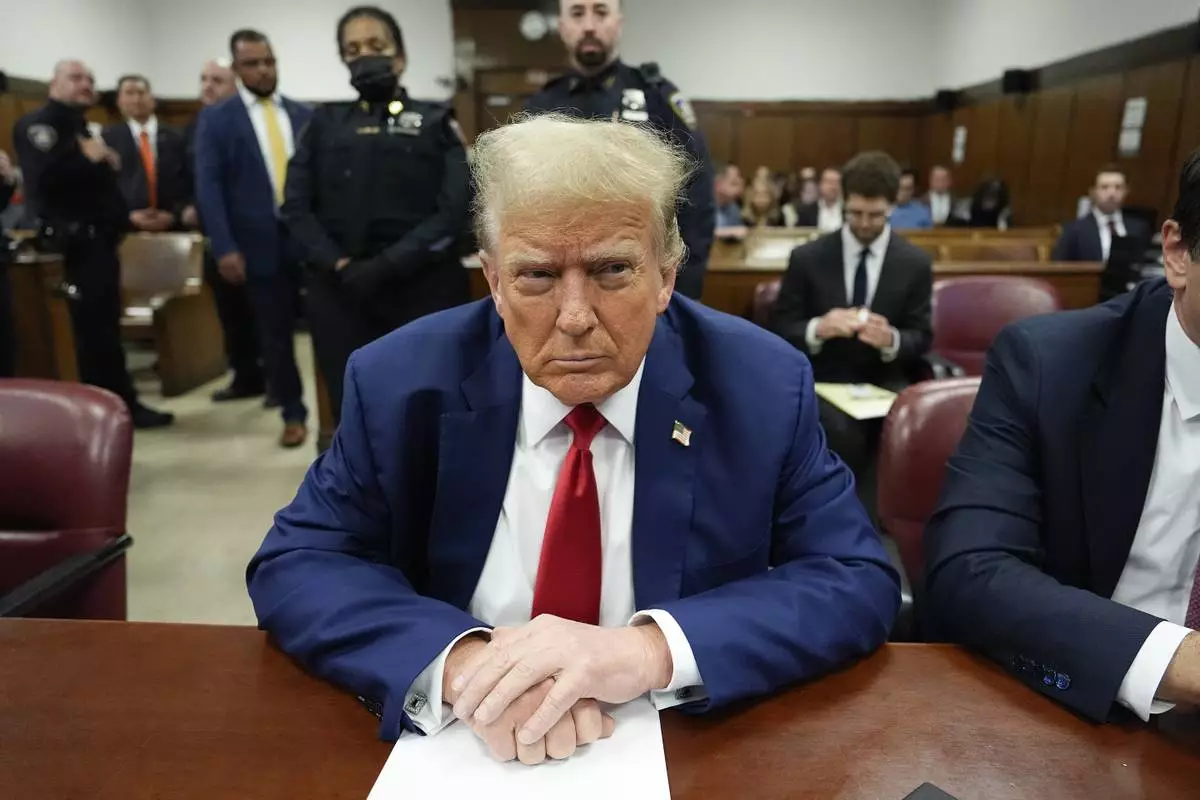
Former President Donald Trump awaits the start of proceedings in his trial at Manhattan criminal court, Monday, May 6, 2024, in New York. (AP Photo/Julia Nikhinson, Pool)
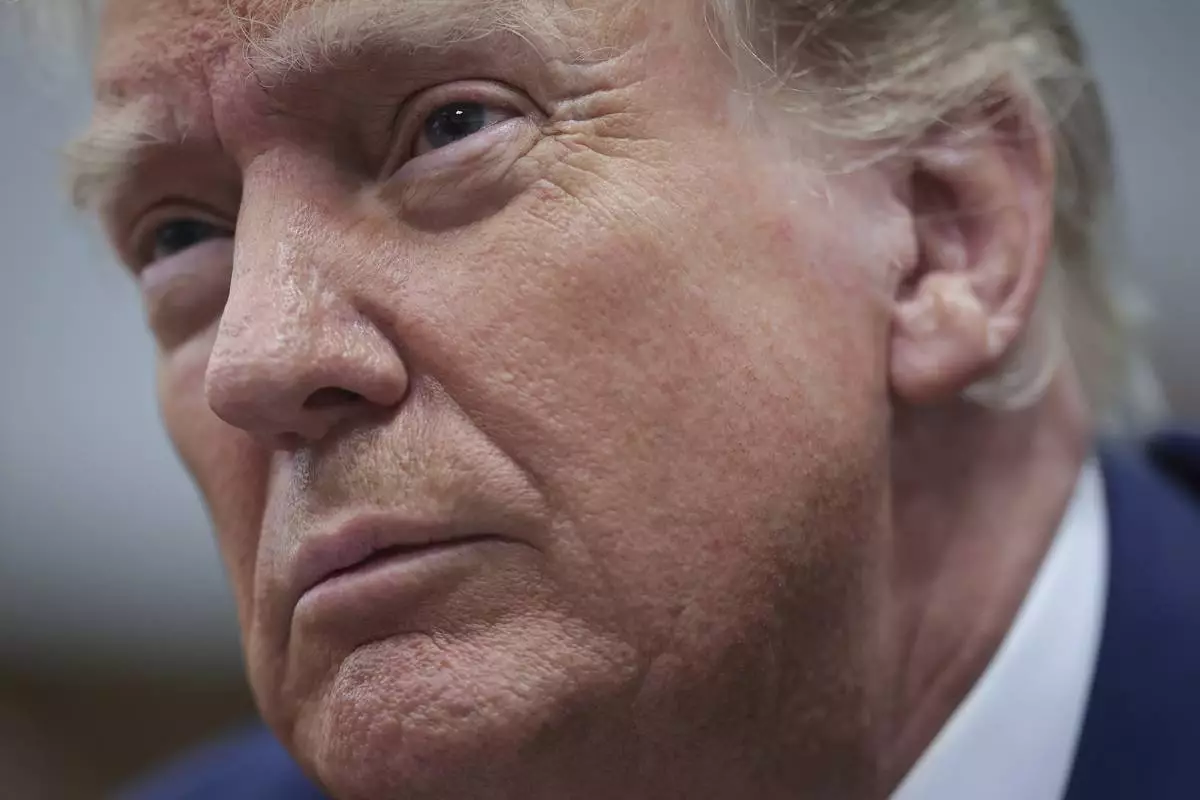
Former President Donald Trump attends his trial at the Manhattan Criminal court, Monday, May 6, 2024, in New York. (Win McNamee/Pool Photo via AP)
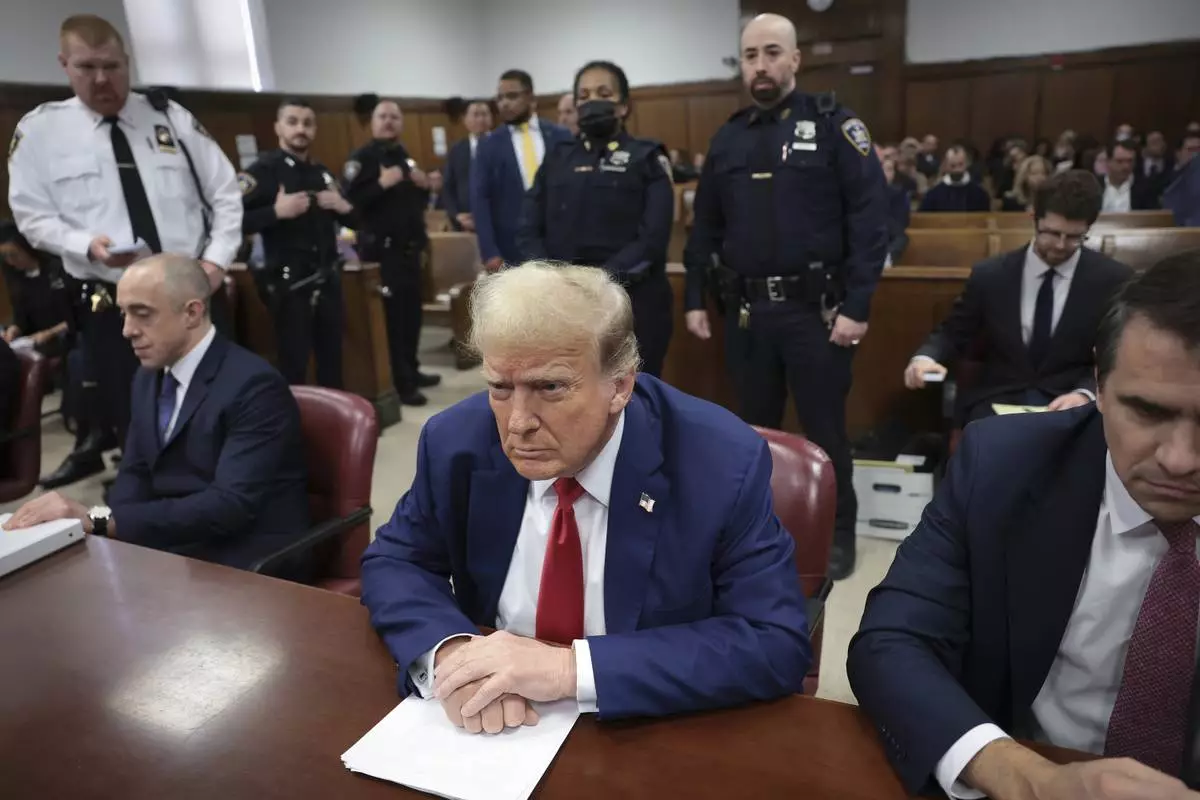
Former President Donald Trump attends his trial at the Manhattan Criminal court, Monday, May 6, 2024, in New York. (Win McNamee/Pool Photo via AP)
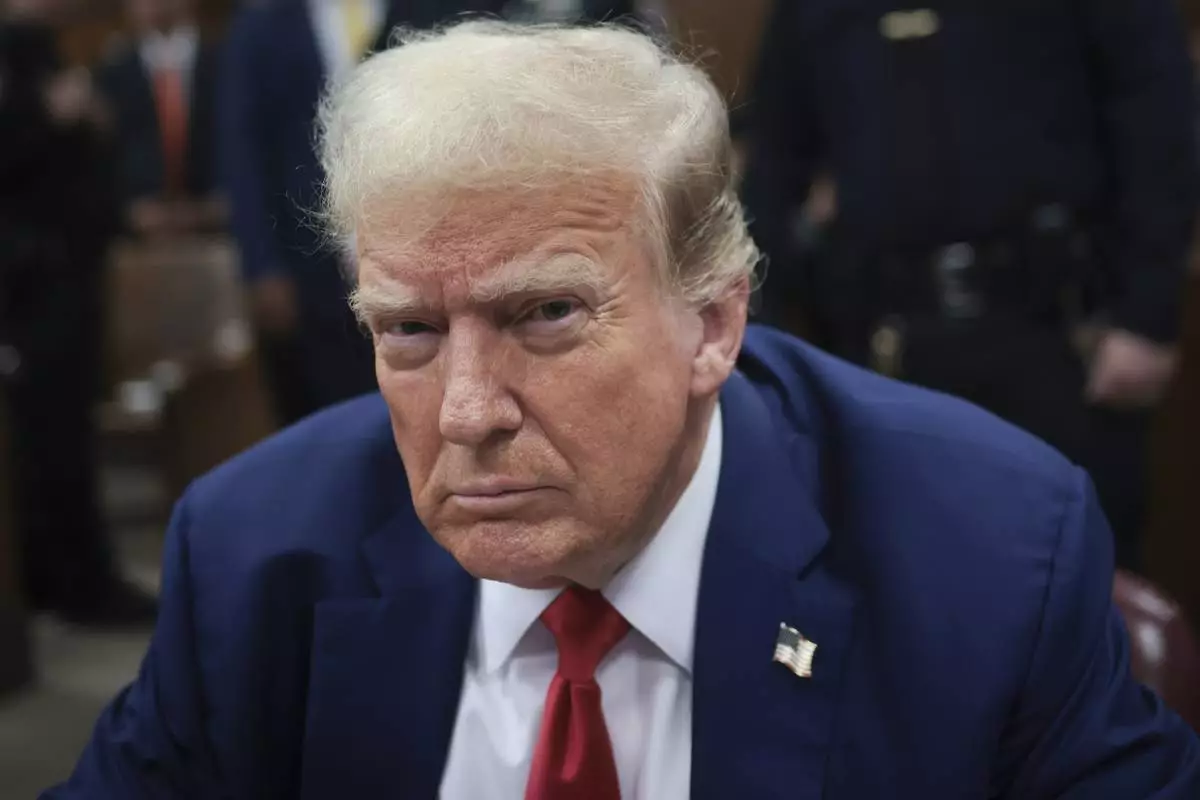
Former President Donald Trump attends his trial at the Manhattan Criminal court, Monday, May 6, 2024, in New York. (Win McNamee/Pool Photo via AP)
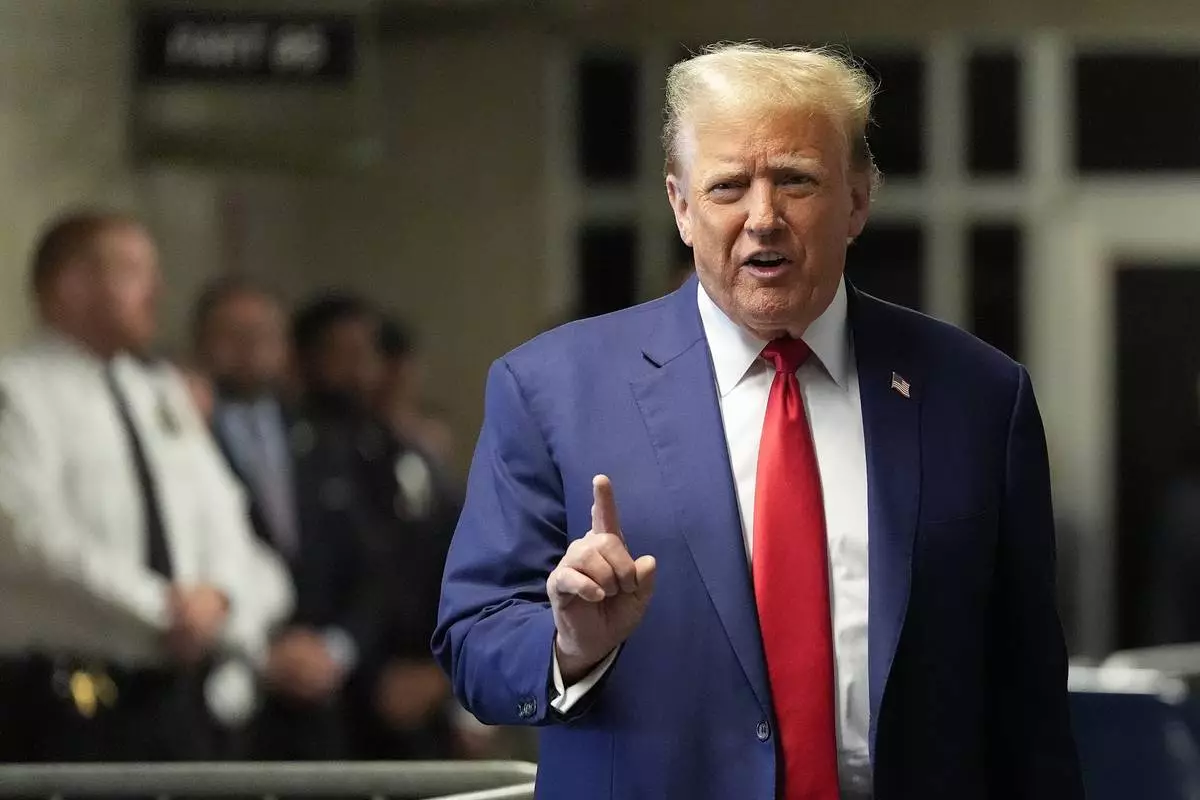
Former President Donald Trump speaks to members of the media before entering the courtroom at Manhattan criminal court, Monday, May 6, 2024, in New York. (AP Photo/Julia Nikhinson, Pool)
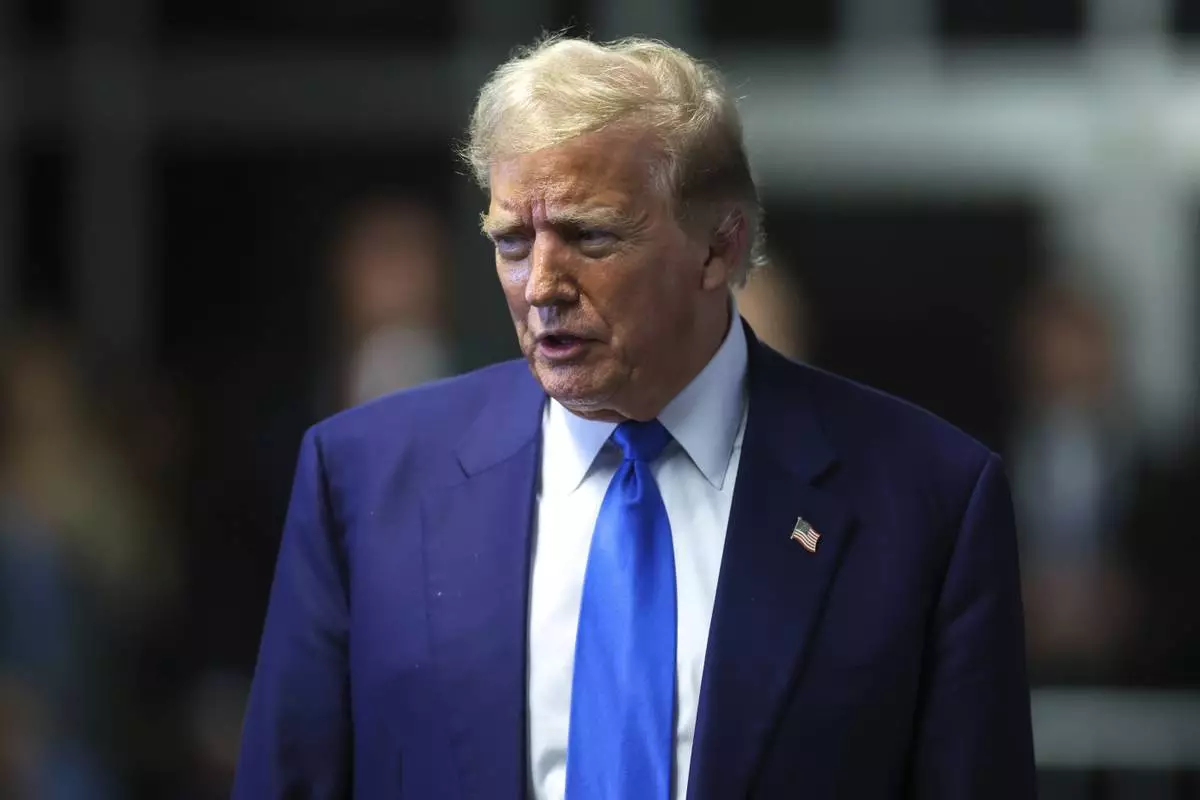
Former President Donald Trump speaks to media as he returns to his trial at the Manhattan Criminal Court, Friday, May 3, 2024, in New York. (Charly Triballeau/Pool Photo via AP)
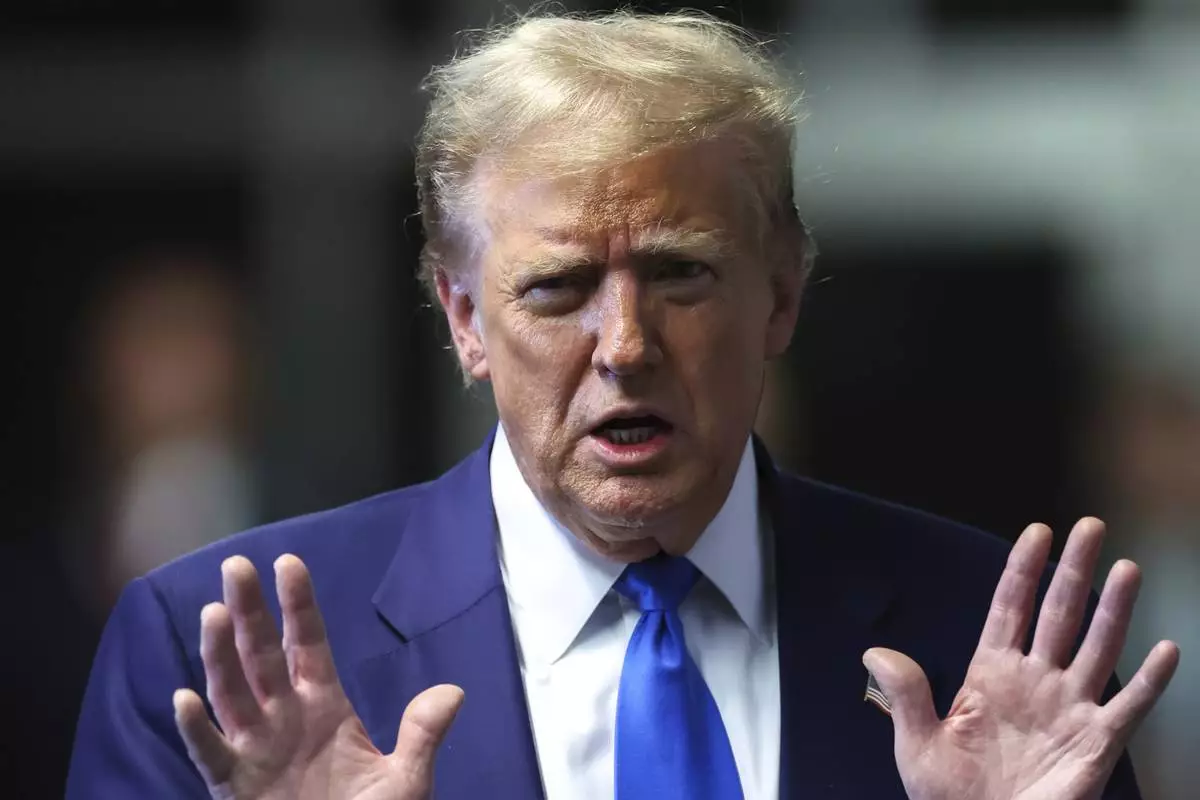
Former President Donald Trump speaks to media as he returns to his trial at the Manhattan Criminal Court, Friday, May 3, 2024, in New York. (Charly Triballeau/Pool Photo via AP)














